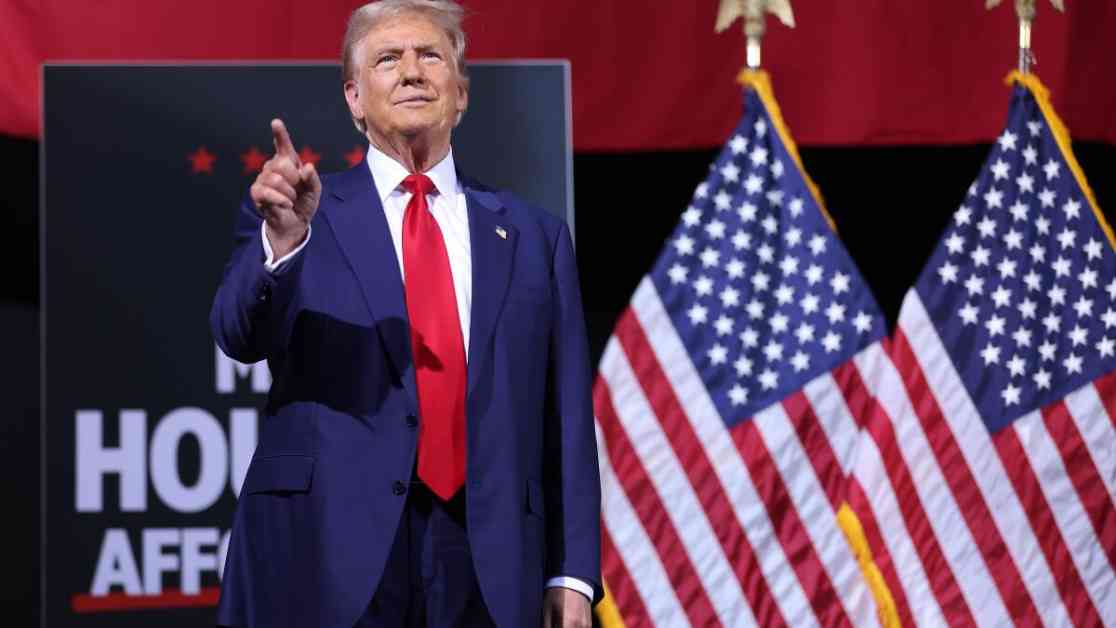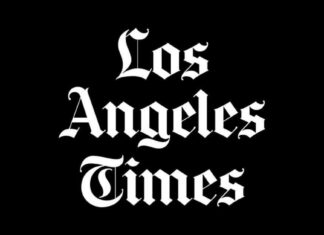Former President Trump made a bold economic pitch to voters during a campaign rally in Tucson, calling for tax-free overtime pay as part of his plan to support hard-working Americans. This proposal, along with his previous calls to eliminate taxes on tips and Social Security benefits, aims to provide a financial boost to those who put in extra hours on the job. Trump emphasized the importance of incentivizing overtime work, stating that those who work overtime are among the most dedicated citizens of the country.
The crowd at the Arizona rally responded with cheers to Trump’s announcement about tax-free overtime pay, showing support for his economic policies. However, critics pointed out that Trump’s administration had previously chosen not to defend an Obama-era rule that would have extended overtime benefits to over 4 million workers. The Harris-Walz campaign seized on this opportunity to criticize Trump’s track record, accusing him of prioritizing the interests of billionaires and corporations over the needs of working-class Americans.
In response to the criticism, Trump defended his stance on overtime pay, arguing that his proposal would benefit workers by allowing them to keep more of their hard-earned money. He framed his economic policies as a way to support the middle class and boost the economy, contrasting his approach with what he perceived as the failures of previous administrations. Trump’s focus on economic issues resonated with his supporters, who see him as a champion of American workers.
Trump vs. Harris-Walz Campaign
The rivalry between Trump and the Harris-Walz campaign escalated as both sides traded accusations and criticisms. Trump accused Vice President Kamala Harris of being out of touch with the concerns of everyday Americans, while Harris-Walz campaign spokesperson Joseph Costello accused Trump of prioritizing the interests of the wealthy elite. The back-and-forth between the two camps highlighted the sharp divide in American politics and the stakes of the upcoming election.
Despite facing backlash from his opponents, Trump remained steadfast in his economic proposals, including tax-free overtime pay. He portrayed himself as a defender of American workers and a champion of economic prosperity, framing his policies as a way to revitalize the economy and create opportunities for all. Trump’s rhetoric resonated with his supporters, who see him as a bold and decisive leader who is unafraid to challenge the status quo.
Trump’s Debate Performance and Immigration Policy
Trump’s appearance in Tucson marked his first rally since a heated debate with Vice President Kamala Harris, where he faced criticism for his confrontational style and controversial statements. Despite the negative feedback, Trump remained defiant, declaring victory in the debate and doubling down on his immigration policies. Trump’s focus on immigration resonated with his base, who see him as a strong advocate for border security and national sovereignty.
Throughout his rally in Tucson, Trump reiterated his commitment to cracking down on illegal immigration and securing the U.S.-Mexico border. He criticized the Biden administration for what he perceived as lax enforcement of immigration laws, accusing President Biden of allowing millions of illegal aliens to enter the country. Trump’s hardline stance on immigration has been a central pillar of his campaign, appealing to voters who are concerned about national security and the rule of law.
Controversy at the Rally
The rally in Tucson was not without controversy, as it drew criticism from some members of the community, including singer Linda Ronstadt. Ronstadt, who has deep Mexican-American roots, expressed disappointment at the former president’s visit to Tucson, characterizing it as a “hate show” that goes against the town’s values of tolerance and inclusivity. The backlash from community members highlighted the divisions within American society and the challenges of navigating political discourse in a polarized environment.
Despite the controversy surrounding the rally, Trump remained focused on his message of economic prosperity and support for American workers. He emphasized the importance of tax-free overtime pay as a way to empower workers and stimulate economic growth, framing his policies as a stark departure from the status quo. Trump’s bold economic proposals have sparked debate and discussion among voters, underscoring the high stakes of the upcoming election and the competing visions for the future of the country.
In conclusion, Trump’s call for tax-free overtime pay at the Tucson campaign rally has reignited the debate over economic policy and the role of government in supporting working-class Americans. His proposal, along with his broader economic platform, has drawn both praise and criticism, reflecting the deep divides in American society. As the election approaches, voters will have to weigh the competing visions of the candidates and decide which path they believe will lead to a more prosperous and equitable future for all Americans.



























